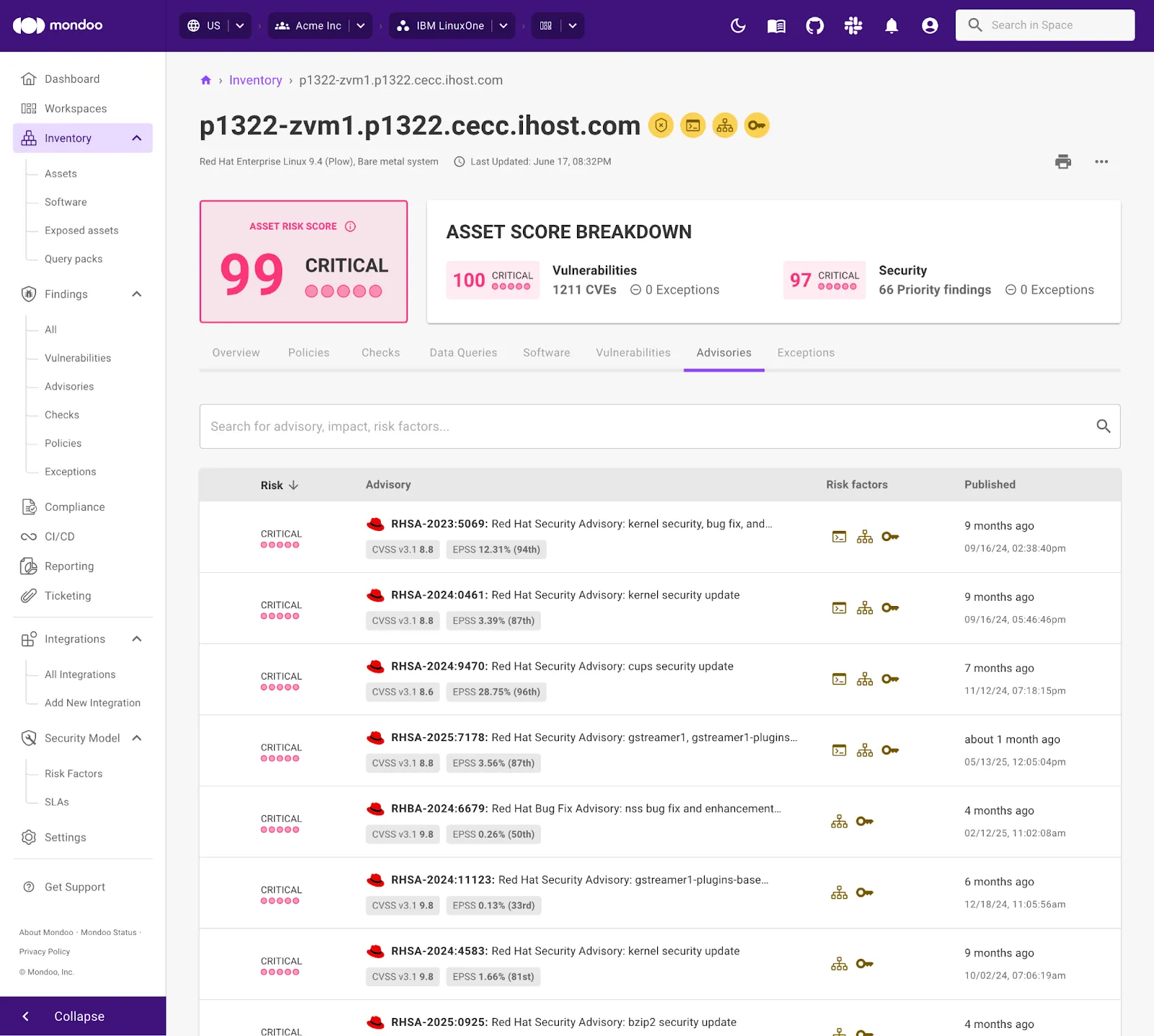What is LinuxONE?
LinuxONE is IBM’s enterprise-grade server platform specifically designed for the Linux operating system. Often used by large enterprises to handle massive workloads and business-critical applications - including a large percentage of global credit card transactions - LinuxONE is known for its security, reliability, and scalability.
LinuxONE offers advanced capabilities such as on-chip accelerators for pervasive encryption, innovative quantum-safe technologies, and energy efficiency. It also offers a cyber-resilient platform optimized for hybrid cloud and AI applications, which can help reduce total cost of ownership.
Mondoo for LinuxONE
Mondoo provides actionable exposure management for LinuxOne (including RedHat, Ubuntu, and SUSE on Z), helping organizations detect and address vulnerabilities and misconfigurations in their environments. Mondoo also provides automated and continuous compliance, using out-of-the-box frameworks and controls for all major regulatory requirements and CIS benchmarks.
Asset inventory
Mondoo provides a complete inventory of all your LinuxONE assets, and allows you to tag them according to criticality. This ensures that risks on mission-critical systems are prioritized. Mondoo also allows teams to easily perform searches, such as searching for systems with certain OS versions or other characteristics.

Vulnerability management
Mondoo identifies and helps fix vulnerabilities on LinuxONE, preventing costly data breaches, ransomware attacks, and compliance violations. Since LinuxONE systems are often mission-critical, it’s extremely important to proactively address vulnerabilities before attackers can exploit them.

Automated compliance
Mondoo provides continuous compliance with regulatory frameworks such as SOC 2, ISO 27001, PCI-DSS, NIS2, NIST, and HIPAA, and validates configurations with applicable CIS benchmarks, including CIS Red Hat Enterprise Linux (RHEL) 8, RHEL 9, SUSE Linux Enterprise Server (SLES) 15, and Ubuntu 24.04 IBM.









